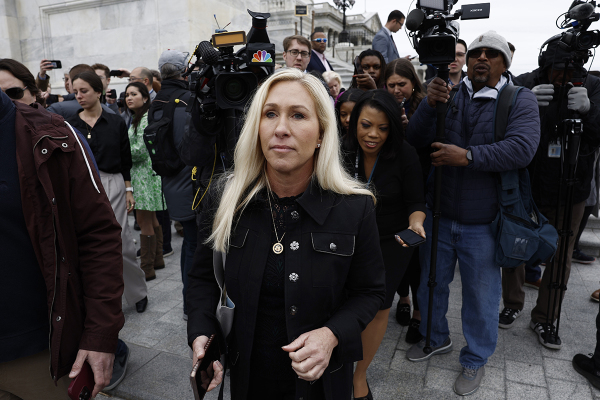Boys Growing Up Without Dads Remain Boys for Too Long

"Girls Grow Up Faster than Boys Do". So asserted the Brooklyn-based R&B group The Cookies in 1962. And it looks like they were right.
A new survey purports to show that men mature substantially later than women. "Men finally grow up at the age of 43 – a full 11 years after women 'mature'," according to the study. "But the average age at which women mature emerged as 32."
Why? Part of the reason is neurological: the brains of boys and girls develop differently. As explained by Dr. Leonard Sax, "The most profound difference between girls and boys is not in any brain structure per se, but rather in the sequence of development of the various brain regions. The different regions of the brain develop in a different sequence, and different tempo, in girls compared with boys -- this is the key insight from the past five years of neuroscience research in brain development. The world's largest study of brain development in children, conducted primarily by researchers at the National Institutes of Health (NIH), has demonstrated dramatic differences in the trajectories of brain development in girls compared with boys."
Yet how much of persistent male puerility is grounded in something wholly environmental: fathers, or the lack thereof. According to Dr. James Henderson, "Recognition of the importance of fathers to children's development is increasing. Fathers play many roles: supporting the mother-infant relationship, nurturing, acting as mother surrogate, encouraging separation and individuation, setting up core sexual identify and developing sex role, and encouraging the development of conscience."
More recently, the office of the Assistant Secretary for Planning and Evaluation in the U.S. Department of Health and Human Services has argued, "Involved fathers provide practical support in raising children and serve as models for their development. Children with involved, loving fathers are significantly more likely to do well in school, have healthy self-esteem, exhibit empathy and pro-social behavior compared to children who have uninvolved fathers. Committed and responsible fathering during infancy and early childhood contributes emotional security, curiosity, and math and verbal skills."
Boys raised by men who are committed and faithful to their wives and show them consistent affection and respect; who demonstrate love for and interest in their sons; who discipline those sons wisely; and who simply spend ample time, the greatest of all gifts, with their boys, produce sons whose confidence, self-restraint, curiosity, kindness, and sense of responsibility prepare them well not only for life generally but marriage specifically.
Yet this preparation is sadly lacking in millions of American homes. According to FRC's Marriage and Religion Research Institute, "Only 46 percent of American 15- to 17-year-olds were raised with both their biological parents married to one another since before or around the time of their birth." A culture in which divorce, infidelity, promiscuity, and cohabitation are prevalent invariably affects the way men relate to women.
Put simply, boys without dads have a tougher time learning to be and act like men. They are less well-equipped to be husbands and fathers.
In tandem with the effects of fatherlessness, our society has so idolized radical sexual autonomy (at-will sexual intimacy for the sake solely of pleasure) that many young men view young women primarily as means of gratification. When sex is placed on roughly the same level of importance as choosing between a cheeseburger and a taco, women are objectified and relationships with them – enduring, loving, respectful relationships between men and women made in the image and likeness of God – erode into one-night stands, hook-ups, and late night binges in pornography or worse.
Is it then any wonder that, according to a new Pew Research study, "Millennials have … been keeping their distance from another core institution of society—marriage. Just 26 percent of this generation is married." The Pew study also notes that a key reason for a marriage-less generation is financial: "Millennials are also the first in the modern era to have higher levels of student loan debt, poverty and unemployment, and lower levels of wealth and personal income than their two immediate predecessor generations."
The Pew study continues, "Perhaps because of their slow journey to marriage, Millennials lead all generations in the share of out-of-wedlock births. In 2012, Forty-seven percent of births to women in the Millennial generation were non-marital, compared with 21 percent among older women. Some of this gap reflects a lifecycle effect—older women have always been less likely to give birth outside of marriage. But the gap is also driven by a shift in behaviors in recent decades. In 1996, when Gen Xers were about the same age that Millennials were in 2012, just 35 percent of births to that generation's mothers were outside of marriage (compared with 15 percent among older women in 1996)."
So: boys are raised without fathers; they enter adulthood encumbered by massive debt; and they are encouraged to see women not as fully human but as avenues for pleasure. This confection of degradation bodes poorly for the future of these young men, of the women they fail to marry, and the children they beget without fathering them.
Christian men need to rise-up and act not just as males who have Christian faith but as men who walk with Christ and live as He demands. Girls might well grow up faster than boys do, but that's no excuse for men to keep acting like morally illiterate boys. And to help them, mature adult Christian men need to take their parts, in their homes and churches and communities.






















